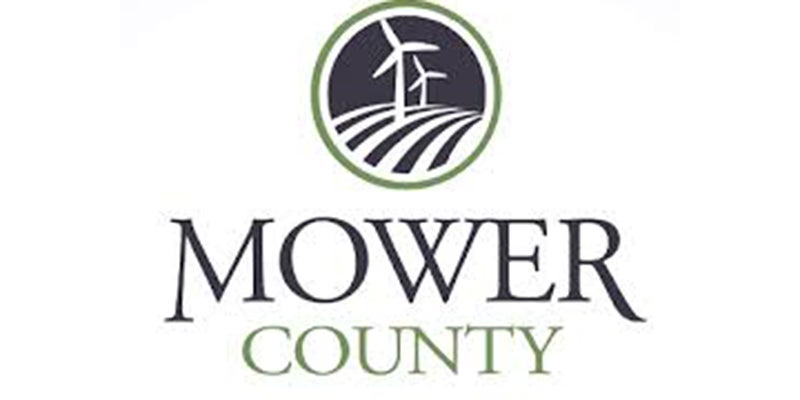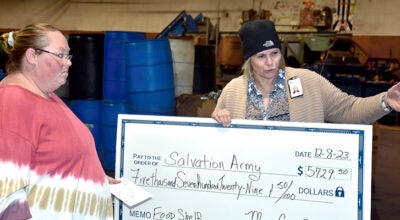Mixed feelings about recycling; Residents call for easier system
Published 10:32 am Monday, August 24, 2015
The Mower County board faces a tough decision to make Tuesday when it’s slated to vote whether to switch to single-sort recycling or keep its current sorted program. However, commissioners will have plenty of public opinion to help guide their decision. While a proposed single-sort plan is expected to make recycling easier and therefore increase recycling to keep items out of landfills, it would increase recycling costs from $16-$18 a year under the county-run sorted recycling program to as much as $55.36 a year. Cost is only part of the story, as a switch to single-sort would cost the jobs of 14-17 people who are placed through Cedar Valley Services Inc. The board is slated to vote around 9:45 a.m. Tuesday in the board room in the basement of the Mower County Government Center.
Residents call for easier system
When Michael Postma and his family moved back to Austin after a decade away, they found recycling to be difficult.
Living in Iowa, they’d gotten used to the ease of single-sort recycling where paper, plastics Nos. 1-7, glass and cans are all put into one bin. Having seen the benefits of single-sort, Postma is one of many calling for the county board to switch to what is said to be a more modern, easier recycling system.
“When I saw that the commissioners were considering single-sort I was really excited,” Postma said.
Postma posted a pro single-sort petition to change.org, which has more than 234 supporters.
For Postma and other single-sort supporters, the key for the recycling system is about simplicity. The ease of putting all recyclables in one containers is said to help increase recycling volumes and reduce trash volumes.
“I think it’s important to do the best we can to get waste out of the landfills,” Austin resident Ann Hokanson said.
Boosted volumes
Many neighboring counties have adopted single-sort programs. Most indications show single-sort would boost recycling volumes by 30 percent or more.
Julie Ketchum, director of government affairs for Waste Management Inc. in Minnesota — the company that would pick up Mower’s single-sort — said the state’s single-sort recycling has been smooth and profitable.
“I think single-sort is a really good, solid program,” she said. “It’s a great way to increase your recycling rate. Once it’s implemented, people love it and they don’t want to go back.”
That’s been the case in neighboring counties. Mark Goskeson, the solid waste officer in Freeborn County and the recycling coordinator in Steele County, said the amount of recycling has doubled in the two counties since single-sort started.
“In 2015, the volume of recycling will have doubled the numbers for 2012,” he said.
To Goskeson, a big selling point of the system is convenience. Freeborn County started using single-sort in 2013, and Goskeson said the easier a system is, the more people are likely to recycle.
“There’s so many more people that do recycle just because it is easier,” he said.
He said once more people start using the recycling bin at home, the awareness to recycle other places becomes big as well, with people asking for recycling bins at restaurants or stores.
“The volumes have doubled and it makes it easier for everyone to recycle,” he said.
Goskeson said there haven’t been many problems with the single-sort recycling, but he noted a need for education surrounding the system. Many people didn’t know what could or could not be recycled and were putting things in that could not be recycled. He said through education, that changes over time.
Freeborn County has pick-up every two weeks, and a drop box for rural residents. The cost raised to $30 for city residences and $25.80 for rural residences per year in Freeborn.
Difficult to recycle
Many Mower residents like Hokanson and Postma find the current system difficult. They argue the curbside pickup schedule is often difficult to keep track of and the three bins are too small.
Hokanson said bins are the wrong size for the type of recycling her family generates, among other concerns. Many times, she said her family simply uses the dropoff site instead of the curbside pickup. Postma also often has to drop off recycling at the drop box at the Mower County Recycling Center, which he said is busy and often full on weekends.
Postma was also frustrated by the design of the containers, which don’t provide coverage for wet or windy days. Recycling often blows out of the boxes.
“It’s actually littering up the neighborhood,” he said.
Hokanson hoped single-sort could eliminate some of these concerns.
“Other communities that have made the switch have seen an increase in the participation for recycling,” she said.
Postma was also concerned the Mower County Recycling Center doesn’t accept plastics Nos. 3-7 and Nos. 1-2 if they’re the wrong shape.
Postma created the change.org petition to provide supporters a place to voice their opinions. He hopes even if there isn’t a change at this time, commissioners take a closer look at the system, which he called outdated, and see what sort of investments it would take to make a change for the better, whatever that change may be.
“We can’t just keep doing what we’re doing,” he said. “It’s literally like we’re still horse and buggy when all the neighboring counties are driving cars when it comes to recycling.”
Postma said the single-sort recycling has proven itself in the neighboring counties such as Freeborn, Steele and others, and said it would be a safe switch.
“I think it’s good that they’re looking at different options,” Postma said.
Still questions
But single-sort supporters still have questions, especially with business or restaurants. Jim Stiles of Jim’s Superfresh Produce and Garden Center said it sounds like the single-sort system works, but Mower County’s single-sort system would no longer provide pick-up to businesses, restaurants, hospitals, apartments, schools or other companies. Those groups would need to enter their own contracts with recycling companies.
“As a business owner, we go through a lot of recyclable stuff,” Stiles said.
“I’m not hearing how everybody can get in on this effectively,” he added.
He feared businesses would simply no longer recycle, due to cost or inconvenience. He said many businesses have pushed against the new system because of these concerns. Another concern was educating people on what can and cannot be recycled, which determines if the product is good for the recycling company or if it goes to the landfill anyway.
“Education’s a big part of moving forward too,” Stiles said.
Stiles said he’s saved about $100 per month in garbage costs over the last four years since he’s recycled, and hoped with more people recycling, there would be less cost in garbage.
“I think they’ve done a good job here in Austin,” Stiles said. “… It’s just you can see that the people doing it, there aren’t very many.”
Driving by homes, Stiles sees many garbage cans filled with things that could be recycled, and hopes single-sort would inspire people to decide to recycle. He said the current system does a good job of sorting the items and getting a good, clean product, but they haven’t done the best job educating people and getting them to recycle.
Hokanson also acknowledged complications with the switch. A change to single-sort recycling would cost about 17 people who work through a Cedar Valley Services recycling contract to lose their jobs, and they might not find new jobs very easily.
“When I read about losing the jobs, that’s a real concern, and I’m so glad to live in a community that cares about the jobs of everyone,” Hokanson said. “I think we just have to put our heads together and find replacement jobs for everyone.”
Board has options with single-sort pickup
Waste Management Inc. bid about $821,000 to offer curbside pickup to all county residences, though businesses, government entities and churches would have to enter individual contracts. The company was the lone qualified single-sort bidder.
For single-sort, the board could approve countywide curbside pickup for $55.36, or it could opt for pickup only in incorporated cities with eight to 10 rural drop boxes, in which case rural residences would likely pay a reduced fee compared to city residents. Since using rural drop boxes would reduce the single-sort costs, the board could apply more savings to rural residences’ bills since they’d receive a reduced service. For example, city residences could potentially pay $48.39 a year for city residential pickup and rural would pay $24.18 to use drop boxes.




